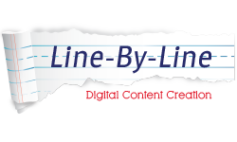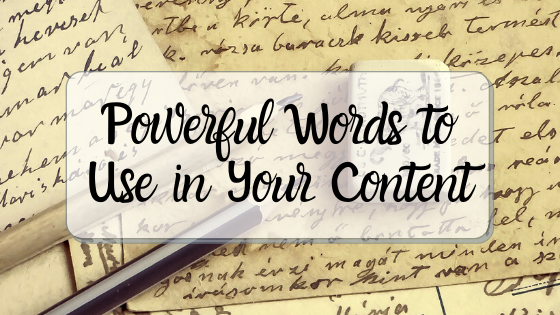We’ve all read boring content. Maybe it was during school. Maybe it was for a project at work. Or maybe it was while you were trying to educate yourself before making a purchase.
If the content you are reading isn’t interesting, entertaining or informative you will click away to something else. You will visit a different website, start a whole new Google search, or put down that boring book and never pick it up again.
You don’t want to bore your customers into clicking away from your content and visiting your competitors instead. So how do you prevent this from happening?
It goes without saying that you need to be offering valuable information that solves a problem. But you can’t stop there. You have to offer content that is interesting, provides a clear picture of what you are describing, or elicits feelings and emotions.
You can do this by using powerful words in your content, and avoiding the wimpy ones.
Here are ways to give your words some muscle:
Use descriptive adjectives
Brief grammar refresh here: An adjective describes a noun. Generally, you want to write with nouns and verbs instead of adjectives and adverbs. But when you do use adjectives, you can pack a lot of power and persuasion into your content just by making the most of them.
Consider this statement:
“The book was good and I highly recommend it.”
Was the book just good? Or was it exceptional? Did you struggle to put it down? Someone reading this sentence may think, “So the book is good. So what?”
But what if instead, you said this:
“The book was outstanding and I highly recommend it.”
Now the book is outstanding—not just good—and you might convince someone to consider reading it.
Here’s another example:
“Putting her dog down was a hard decision.”
If you’ve ever had to do this (we’ve unfortunately had to do it twice), you know that you are weighing your companion’s suffering and quality of life with the notion of not having them around anymore. It’s agonizing.
“Putting her dog down was an excruciating decision” tells a story of the internal conflict between her own self interests and what was ultimately best for her pet’s well being. It’s a stronger sentence. It’s more interesting. It elicits emotion. Check, check, check.
Rethink your “State of Being” words
State of being words are words like is, am, was, would, were, being and been. Sometimes you need these words, other times they can be replaced with stronger ones.
Here’s an example:
“I would suggest you consider another option.”
It’s not necessary to tell your reader you are suggesting something. Just suggest it. “Consider another option” is a stronger sentence.
This example works the same way:
“You should be asking for a lower price” can be revised to say, “You should ask for a lower price.” Or simply, “Ask for a lower price.” The latter two sentences are more powerful.
“The book is inspiring to all who struggle with running a business” is a longer, more complicated way to say, “The book inspires those who struggle to run a business.”
Use stronger verbs
Much like the adjectives, when you use stronger verbs and avoid ordinary ones, your writing will be clearer and more interesting.
Here’s an example:
“She went down the aisle until she found what she was looking for.”
If you replaced the verb “went” with “strolled” or “wandered” you get a sense that she is relaxed, and slowly shopping for what she is looking for. But if you replace it with “marched” or “dashed” or “rushed” you know that there is urgency to her actions. Why is she in a hurry? Is there an emergency? You could also replace “looking” with “searching.” Makes things more interesting and tells a clearer story.
Wimpy words to avoid
Here are some words you can take out of your writing vocabulary:
Very – Very is a worthless, lazy word in the English language. We use it when we don’t have the energy to think of something else. “The child was very tired” is a lazy way to say, ‘The child was exhausted.” See how much more descriptive that is?
Really – Really is like “very”. “The speech was really good” can be changed to, “The speech was inspiring.” Shorter, cleaner, clearer.
Thing – Thing is a struggle to take out of writing because we all use it. It’s a boilerplate word for a wide range of objects and situations. It’s vague. Replace it with what you really mean.
That – Sometimes you need to use the word “that.” But if the sentence makes sense without it, take it out. “She said that the bank closes at 5” is better as “She said the bank closes at 5.” Interesting suggestion: Go back through the last email you sent and count the number of times you used “that.” We all do it, but we don’t need to. Our writing will be stronger without it.
It takes just a few tweaks, adjustments and omissions to add power to your writing. Leave the boring content to your competitors and use these tips to create clearer, stronger and more engaging content for your customers.
If you’d like to receive my best advice, please join my mailing list:

